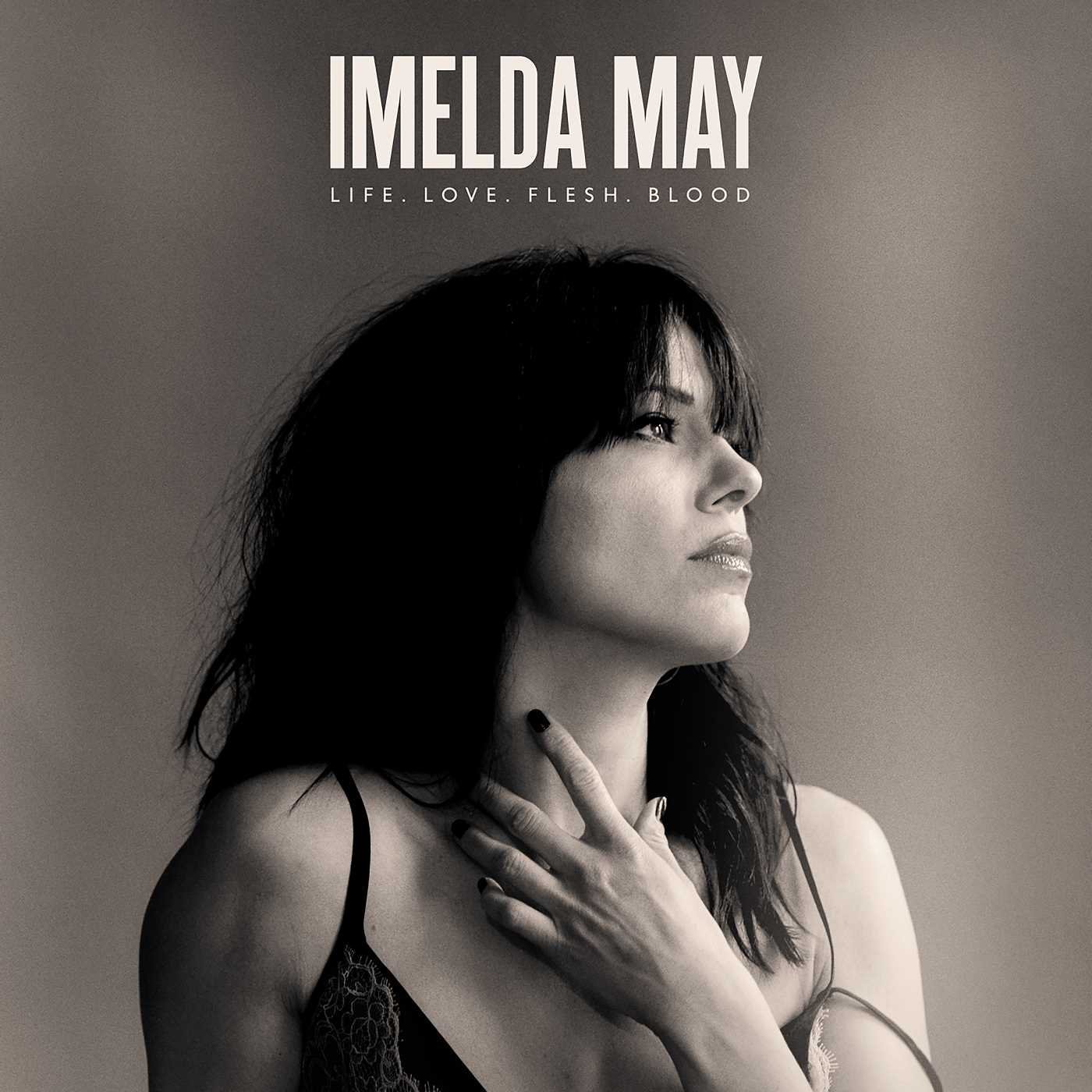Certain quarters of the music press would have you believe that Imelda May conceived and recorded this album in a torrent of tears after her marriage break-up, a blubbering shell of the woman she once was. Much has been made of the latest long player’s sense of melancholy, but the truth is, Life. Love. Flesh. Blood. does so much more than wallow dolefully in its own self pity. Granted, there are moments where this is truly a yearning heartache of an album, but for the most part it merely acknowledges that the past is behind her and tries to look upon the years ahead with as much optimism as she can muster.
May’s fifth long player is at its most pensive early on in proceedings, the Dubliner re-inventing herself as a Norah Jones style lounge lizard on ‘Call Me‘ and going all Billie Holiday on us for single ‘Black Tears‘. If anyone was ever in any doubt about the extent of her vocal talents (we weren’t), then those two numbers truly demonstrate just what an exceptional range she has.
Contrary to seemingly popular belief, however, the story from here on is pointedly different. Take ‘Levitate‘, which sounds a little like I imagine Portishead would if they were commissioned to write the theme tune to the next James Bond movie. Or album finale ‘The Girl I Used To Be‘, which can easily be compared to Jason Isbell‘s Southeastern curtain-closer ‘Relatively Easy‘, if not necessarily in composition then at least in spirit. Like Isbell’s, this is a wistful sounding nod to the past but with an admirable focus on perspective, May now singularly aware that her number one priority, above all else, is the well-being and happiness of her daughter.
And that, more than anything else, gives you the perfect example of just what Imelda May is all about. Having interviewed her recently (albeit briefly), I can confirm without hesitation that when T Bone Burnett (who produced this album) says “she is full of life…I was inspired by her honesty and her generosity, and I continue to be intrigued“, he is bang on the money. I found a real radiance, the most glorious warmth emanating from her, and this shines through in most of the eleven numbers here, possibly best evidenced in the gospel soul of the Jools Holland featuring ‘When It’s My Time‘ towards the long player’s closing stages.
Furthermore, she proves time and again just how adept she is at performing a myriad of different musical styles. ‘Bad Habit‘ doesn’t venture too far from the rockabilly sound with which she is best known, marrying that with a melody that evokes memories of Gotye‘s number one smash ‘Somebody That I Used To Know‘, whereas ‘Sixth Sense‘ nods towards the deep South, Jace Everett‘s True Blood theme tune ‘Bad Things‘ perhaps, and the fabulous ‘How Bad Can A Good Girl Be‘ possesses such an aching mystique that it could easily soundtrack the most surreal of David Lynch flicks.
This is classic songwriting at its finest, and while I don’t find myself fawning over every single track (‘Leave Me Lonely‘, for example, paddles a little too closely to the tides of ‘soft rock’ for my liking), I do think that ‘Life. Love. Flesh. Blood.‘ deserves to be held up and celebrated as something of a classic of its kind for many years to come.




